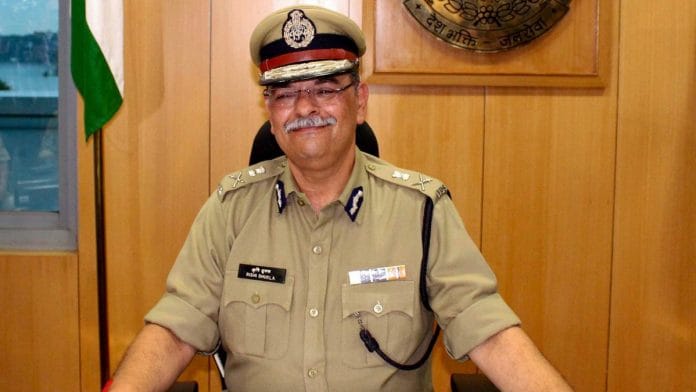Critics may attribute Mallikarjun Kharge’s dissent to partisan reasons, but his stand on selection of R.K. Shukla as CBI director has backing of Supreme Court and law.
New Delhi: On 1 February, immediately after a meeting of the three-member high-level committee to select the new CBI director, leader of the single-largest opposition party in the Lok Sabha, Mallikarjun Kharge, sent a two-page note to the other two members, Prime Minister Narendra Modi and Chief Justice of India (CJI) Ranjan Gogoi.
In the note, Congress leader Kharge dissented from the majority view to appoint former Madhya Pradesh Director General of Police Rishi Kumar Shukla as CBI director.
He pointed out that while Shukla was the most senior among the candidates in the shortlist, he lacked the mandatory “experience in the field of anti-corruption”.
A similar sequence of events had played out two years ago, when the panel sat down to appoint Shukla’s predecessor, Alok Verma.
Kharge had dissented from the then CJI J.S. Khehar and PM Modi’s decision to appoint Verma as CBI director, offering virtually the same reason.
Arguing that the post be given to R.K. Dutta, an officer who qualified on the parameters of seniority as well as experience, Kharge had said Verma’s appointment would “not only be unfair but also put a question mark on the bonafide and intent of the committee and also of the government”.
In his dissent letter, Kharge had underlined, “It is abundantly clear that the committee has overlooked a more qualified, experienced and competent candidate and also seniority, integrity and experience in the field of anti-corruption envisaged in the [Delhi Special Police Establishment] Act, which goes against the spirit and objective of this committee.”
What is the settled principle of law?
While critics may attribute Kharge’s dissent to partisan reasons, it turns out that he had law on his side both times.
Supreme Court judgments in at least two cases involving appointments to the CBI as well as the amended Delhi Special Police Establishment Act, which governs the investigative agency, have stressed the importance of experience in anti-corruption investigations as a crucial eligibility criterion.
On 20 April 2004, hearing the case ‘Union of India and another versus C. Dinakar, IPS, and others, a three-judge bench of the Supreme Court headed by then CJI V.N. Khare had held merit more important than seniority in the selection of CBI director. “Seniority although is a criteria but merit indisputably would play a decisive role which is required to be determined with other relevant considerations, namely, integrity and experience in the investigation in anti-corruption cases,” it had said.
Also read: The law does not allow Modi govt to remove CBI chief Alok Verma
In December 1997, in the landmark Vineet Narain judgment, a three-judge bench of the Supreme Court headed by then CJI J.S. Verma directed that for the post of selecting the CBI director “the committee shall draw up a panel of IPS officers on the basis of their seniority, integrity, experience in investigation and anti-corruption work”.
Moved on a petition filed by journalist Narain over certain hawala cases, the judgment laid down guidelines to ensure the CBI’s autonomy and came to be known by Narain’s name.
A similar stress on experience is laid out in Section 4A of the Delhi Special Police Establishment Act, which says the committee has to recommend a panel of names on the “basis of seniority, integrity and experience in the investigation of anti-corruption cases” from among eligible IPS officers.
Also read: In siding with govt, Supreme Court has lot to answer on Alok Verma’s ouster as CBI chief







Increasingly, one is beginning to see the pitfalls in associating the CJI with the selection process. Assuming the columnist is right in his appreciation of the law, it means the head of the judiciary has been party to a legally unsound decision. If it is challenged before the apex court, he would, of course, recuse himself, entrust the case to another Bench. What if the Bench comes to the same conclusion the columnist has …
Kharge is always only following “her majesty’s” instructions blindly and does not have a single independent thought in his brain. This article is expecting a lot more from him than he can give!